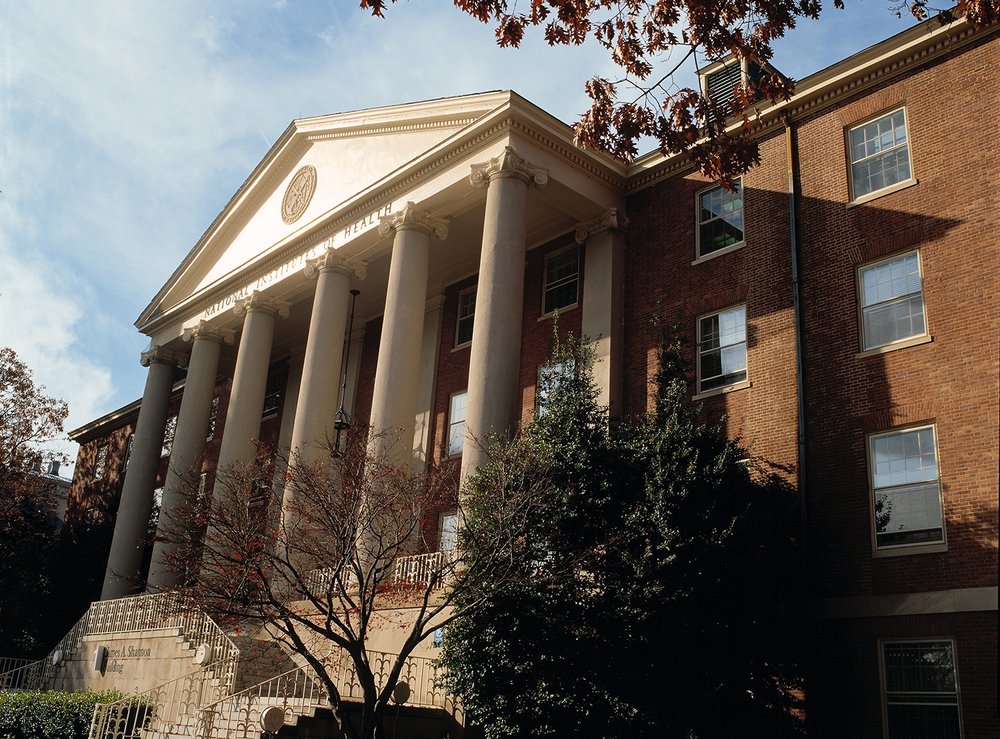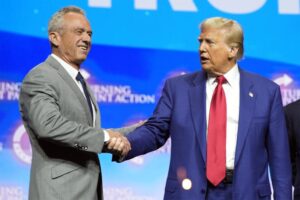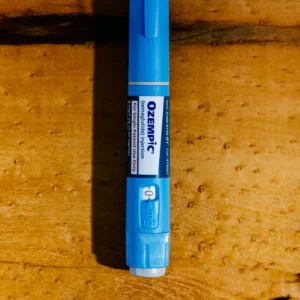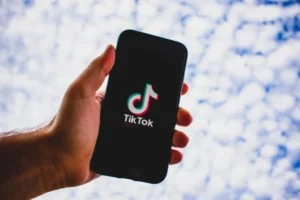The agency long benefited from broad bipartisan support. But Republican criticism has intensified, and new choices for top health posts hope to upend the organization.
By Cristin Dusks | Dec 02, 2024 Updated 01:37 p.m. ET
The National Institutes of Health, the world’s leading public funder of biomedical research, has an enviable track record. Research supported by the agency has led to more than 100 Nobel Prizes and has supported more than 99 percent of the drugs approved by federal regulators from 2010 to 2019.
No surprise, then, that the agency has been called “the crown jewel of the federal government.” But come January, when President-elect Donald J. Trump and congressional Republicans take charge, the N.I.H. may face a reckoning.
Robert F. Kennedy, Jr., the new administration’s selection for secretary of the Department of Health and Human Services, which oversees the N.I.H., routinely castigates federal scientists and is a staunch critic of conventional pharmaceuticals and vaccines, with a long record of spreading falsehoods about vaccine safety.
He has said that he would steer the agency into a yearslong “break” from infectious disease research, focusing instead on chronic diseases.
And Mr. Trump’s pick for N.I.H. director, Dr. Jay Bhattacharya, the Stanford professor who gained notoriety during the pandemic for supporting the widely maligned idea that the coronavirus should be left to spread freely among healthy Americans, has called for a dramatic restructuring of the N.I.H., which he has said is led by small-minded bureaucrats.
While even the agency’s defenders acknowledge that the N.I.H. needs modernization, the radical reforms now proposed would be difficult, if not impossible, without years of legal wrangling and significant support from Congress, experts say.

But many fear that the next administration will nonetheless weaken the N.I.H., divesting from critical research with long-lasting consequences for science, innovation and public health.
A spokesman for the Trump transition team said Mr. Trump’s cabinet picks will “slash wasteful spending in our broken health care system that cripples our nation’s budget” and “return health care to the Gold Standard.”
Dr. Bhattacharya and Mr. Kennedy did not respond to requests for comment.
The N.I.H. comprises 27 institutes, each focused on a different set of diseases or health topics, such as cancer, aging or substance abuse. The agency has roughly 6,000 of its own scientists, but more than 80 percent of its $47 billion budget goes to outside researchers, who apply for grant money in a highly competitive process.
Politicians have periodically succeeded in curtailing certain types of studies they didn’t like. Republican administrations have sharply restricted embryonic stem cell and fetal tissue research, moves that were reversed by their Democratic successors.
But historically, the agency was broadly popular on both sides of the political aisle. During his first term, Mr. Trump proposed slashing the N.I.H.’s annual budget by about 18 percent; Congress approved funding increases instead.
“The N.I.H. seemed to have escaped political gravity — they’ve been beloved by both political parties, almost uniquely,” said Lawrence Gostin, a public health law expert at Georgetown Law. “This is a huge tipping point.”
The Covid-19 pandemic was the catalyst. Republicans criticized agency leaders for dismissing the theory that the coronavirus leaked from a lab in Wuhan, China, and for financially supporting research conducted there.
Vaccine skeptics noted that Moderna’s Covid-19 vaccine was developed with substantial support from the N.I.H. And Dr. Anthony S. Fauci, the former director of the National Institute of Allergy and Infectious Diseases, became the face of unpopular pandemic policies, including lockdowns and vaccine mandates.
“The anti-vaccine movement and the anti-science movement was supercharged during the pandemic, and the bipartisan support for public health has disappeared,” said John Moore, a virologist at Weill Cornell Medicine in New York who receives N.I.H. funding.
Two Republican members of Congress have recently proposed collapsing the N.I.H.’s 27 institutes into just 15, and increasing political oversight of its work, which they argued is rife with “research duplication, gaps and misconduct.”
Project 2025 — a policy blueprint spearheaded by the Heritage Foundation, a conservative think tank — described an even more dramatic plan to defang the agency by funneling a chunk of its budget to state governments to “fund their own scientific research.”
Then, Mr. Trump announced his choices to lead the federal health agencies.
Dr. Bhattacharya, the pick for N.I.H. director, told The Washington Post he would restructure the agency so that power was decentralized from “a small number of scientific bureaucrats,” whom he believes have stifled creativity in research and censored his own contributions.
During the pandemic, Dr. Bhattacharya stepped onto the national stage as an author of the Great Barrington Declaration, a document that called for letting Covid-19 spread naturally and quickly so that society might achieve herd immunity.
The theory was that most vulnerable, such as the elderly and immunocompromised, would take shelter while the rest of the nation moved toward normalcy.
The idea was largely dismissed by mainstream experts, who believed the hypothesis was unscientific and unsafe. Among them was Dr. Francis Collins, the director of the N.I.H. at the time, who called Dr. Bhattacharya and his co-authors “fringe epidemiologists.” Dr. Fauci called the proposal “total nonsense.”

“They use the power of the government to stop people from hearing that there were other outside voices,” Dr. Bhattacharya told an interviewer in June.
In the news release announcing Dr. Bhattacharya’s selection, Mr. Trump’s incoming administration cited the Great Barrington Declaration as one of Dr. Bhattacharya’s qualifying accomplishments, an irony that was not lost on his allies.
In an op-ed for The Wall Street Journal, Mr. Kennedy suggested reallocating half of the agency’s budget to “preventative, alternative and holistic approaches to health.” Most recently, he said he would replace hundreds of N.I.H. employees the day after Mr. Trump’s inauguration, according to ABC News.
Both of Mr. Trump’s picks have had ties to groups that have put forth the idea of criminalizing mainstream scientists.
Dr. Bhattacharya on Friday resigned from the board of Biosafety Now, a group that has promoted prosecuting “those culpable for covering up” the cause of Covid-19, a designation that supporters of the theory that the coronavirus leaked from a lab have often applied to scientists who took different views.
During a 2013 speech at an autism conference, Mr. Kennedy said that vaccine scientists — who he falsely claimed hid evidence that a preservative in some vaccines could cause autism — “should be in jail and the key should be thrown away,” according to NBC News.
In a second Trump administration, the N.I.H. could be subjected to “what is likely to be the most sustained political meddling ever in its history,” said Dr. David Gorski, a cancer surgeon at Wayne State University in Detroit and the managing editor of the blog Science-Based Medicine. (Dr. Gorski has received N.I.H. funding in the past, but not in recent years.)
Many of the most extreme plans to upend the N.I.H. are likely to hit legal barriers. Most of the agency’s employees are classified as civil servants and cannot be fired without cause. The new administration is expected to challenge those protections, but Mr. Gostin, the public health law expert, said those efforts would most likely be mired in years of litigation.
Since Congress sets the budget for each of the agency’s institutes, Mr. Kennedy could not unilaterally defund those responsible for studying infectious disease.
Any attempt to broadly restructure the agency would also require wide support from Congress, which still holds Republicans that are “very loyal” to the N.I.H., Mr. Gostin said.
Even so, experts said, the Trump administration could still have significant influence over the agency.
“Oftentimes the scientists who are brought into Washington — who are very reputable in their own spheres — don’t necessarily understand very well how the administrative game is played,” said Arti Rai, a director of the Center for Innovation Policy at Duke Law School. “They can be nudged very forcefully.”
The agency’s individual institutes have enormous flexibility in how they spend their budgets and which grant applications they approve, Ms. Rai said.
The directors of these institutes typically serve five-year terms, which can be repeatedly renewed. Political overseers could appoint new, like-minded directors instead.
(Ms. Rai has received funding from, and has served as an adviser to, the N.I.H. in the past.)
Mr. Kennedy has provided few specifics about the research he’d like to defund, but vaccine development seems to be on the chopping block, some researchers said.
“If the Senate approves Kennedy, they’re automatically, de facto approving his agenda, and his agenda is strongly anti-vaccine,” said Dr. Moore, the virologist.
Congressional Republicans also have been keen to clamp down on studies in which scientists genetically alter viruses in a lab to learn more about what kinds of changes might make pathogens more dangerous — what is known as gain-of-function research.

Even a temporary pause in research on any particular topic could have long-term consequences, driving experienced scientists out of the agency and discouraging new researchers from entering certain fields, some researchers said.
“Should we stop funding any specific type of research, it would set us back decades in terms of our ability to respond to new threats and our ability to protect the public,” said Dr. Megan Ranney, the dean of the Yale School of Public Health, who receives funding from the N.I.H.
It could also mean delaying or missing out on the basic discoveries that will drive the next medical breakthrough. The mRNA research that laid the groundwork for the rapid development of Covid-19 vaccines started more than three decades before the pandemic.
“You don’t know exactly how those things are going to pay off,” said Richard Frank, director of the Center on Health Policy at the Brookings Institution, a public policy think tank, and a former D.H.H.S. official. “You can do a lot of damage that will haunt you for many years if you don’t tread carefully.”
Gutting infectious disease research, for example, might also impede efforts to study chronic illnesses, one of Mr. Kennedy’s priorities.
That research doesn’t always fall neatly into one bucket or the other, said Sudip Parikh, the chief executive of the American Association for the Advancement of Science. Immunotherapies that are used to treat cancer, for example, grew out of research that the infectious disease branch of the N.I.H. conducted on the immune system.
More broadly, the N.I.H. already does much of the work on chronic disease that its critics say should be a priority.
The N.I.H. already spends tens of billions of dollars on research into chronic diseases, operating institutes dedicated to studying diabetes, obesity, neurological disorders and heart disease.
It is not uncommon for a new administration to prioritize certain kinds of medical research — President Biden has championed the cancer “moonshot” program, which aims to sharply cut cancer deaths. His son, Beau Biden, died of brain cancer.
But critics worry that Mr. Kennedy, a proponent of alternative treatments and critic of mainstream science, does not plan to invest in evidence-based research.
When Mr. Kennedy talks about holistic and preventative medicine, “what he’s talking about is the supplements, the quackery, the overblown claims that you can cure all diseases with diet,” said Dr. Gorski, the cancer surgeon.
And the scale of what Mr. Kennedy has proposed — allocating half of the agency’s budget to his interests — dwarfs what past administrations have earmarked for their projects.
Whereas officials in the past have sought to harness the expertise of the agency, Mr. Kennedy appears more interested in unraveling the institution, said Dr. Harold Varmus, a former N.I.H. director.
“None of us who are in the scientific community think that N.I.H. is perfect,” Dr. Varmus said.
“But everyone I know in the N.I.H. domain views it as one of the great creations of the modern government and respected throughout the world,” he added. “The last thing we want is someone coming in and saying not that we’re going to fix it, but we’re going to blow it up.”








Be First to Comment